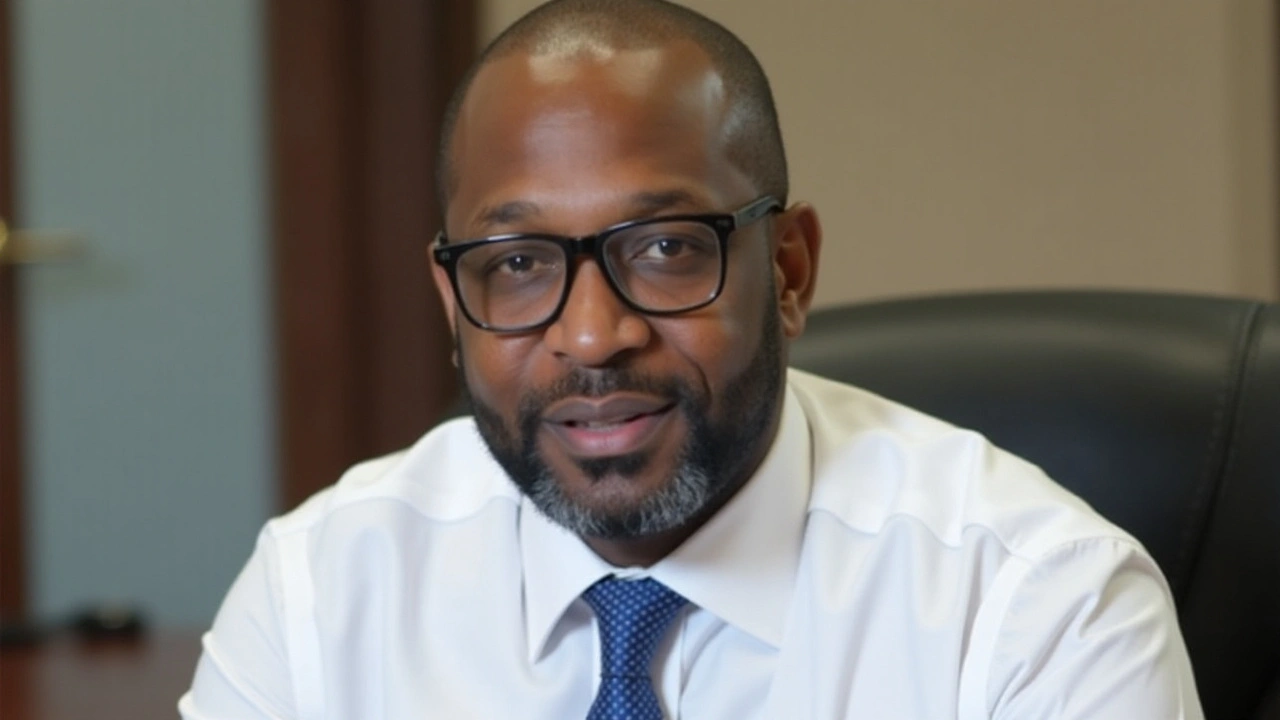Arrest and Detention of Investigative Journalist Fisayo Soyombo
The detention of investigative journalist Fisayo Soyombo by the Nigerian Army in Port Harcourt has stirred significant concern both locally and internationally, raising critical questions about press freedom and the military's role in civilian matters. A renowned journalist known for his courageous exposés, Soyombo’s arrest came under unsettling circumstances. He was allegedly nabbed during an anti-illegal oil bunkering operation conducted by troops in the South-South region, known for oil production and frequent illegal activities surrounding the resource.
The 6 Division of the Nigerian Army announced that intelligence had uncovered a notorious gang of oil thieves, leading to a raid on the premises. During this operation, Soyombo, along with several others, was apprehended at what was described as an illegal oil bunkering site. The army claimed these operations aim to curtail rampant theft and illegal siphoning of the nation’s oil resources, an issue that has profound implications on Nigeria’s economy, security, and environment.
Concerns Over Military Conduct and Press Freedom
The implications of this detention extend beyond the arrest itself, as it underpins a complex dialogue on the boundaries of military intervention and the protection of journalists who hold the powerful to account. Civil organizations, journalists, and advocates for free press emphatically condemned the arrest, labeling it unconstitutional and a blatant form of intimidation. The Media Rights Agenda (MRA), among other watchdog groups, was quick to point out that the Nigerian Army does not possess the legitimate authority to detain civilians without a formal charge, urging immediate compliance with legal standards.
In Nigeria, where democracy is still fortifying, this incident reignites longstanding debates about freedom of expression and the role of security forces in civilian oversight. The MRA called on President Bola Tinubu to intervene and ensure the sustenance of these democratic principles, emphasizing that any semblance of military overreach could erode hard-earned liberties.
Detention and the Uneasy Road to Release
After three days of mounting pressure from various media outlets and civil society groups, the Nigerian Army eventually succumbed and released Soyombo. This development was received with a mix of relief and lingering anxiety, as the circumstances of his release did little to assure journalists and activists of their safety or imply a shift in the military's modus operandi towards such detentions.
The Foundation for Investigative Journalism (FIJ), which Soyombo founded, confirmed his release but conveyed serious concerns regarding his safety post-detention. It appears that during his time in custody, extensive information sharing between Soyombo and the military occurred. Such actions could potentially expose Soyombo and his sources to further risks, particularly given the volatile nature of investigative journalism in regions like Nigeria characterized by corruption and illicit riches from natural resources.
The Fallout and Long-term Implications
The arrest and subsequent release of Fisayo Soyombo have far-reaching implications beyond an isolated incident. In a country where oil is both a blessing and a curse, the control over oil and the fight against illegal bunkering operations continue to be a security priority. However, actions taken by the military, especially involving civilians, necessitate rigorous scrutiny to prevent abuses of power that can damage Nigeria’s international standing and internal governance.
For the journalistic community, this incident serves as a chilling reminder of the perils faced by those who dare to uncover the truth. It also underscores the importance of robust legal protections for journalists who serve as public watchdogs, especially in the global south where state structures can often encroach on individual freedoms.
As Nigeria advances in its democratic journey, fostering an environment where the press can operate without intimidation remains indispensable. This begins with delineating military jurisdiction clearly, ensuring that its roles do not impede on civilian oversight. Moreover, future actions by the government and military alike will be closely watched by both local and international bodies invested in the country’s democratic trajectory.



Comments
Stay strong, fellow truth‑seekers. The brave work you do keeps us all informed and defenseless from fear. Even when the system tries to silencing you, remember that many people stand behind you and definatly believe in your cause. Keep pushing forward, we need more voices like yours.
Wow, this is a serious situation 😮. It’s amazing how quickly pressure from the media can get the army to back down. Let’s hope the authorities learn to respect journalists before they need the public to intervene again. 😊
While the incident raises concerns, the importance of due process must be underscored. The military’s actions, however well‑intentioned, cannot sidestep constitutional protections. A balanced approach that safeguards both security and press freedom is essential. It is vital that any future operations be transparent and legally grounded.
Just a heads‑up for anyone following this: organizations like CPJ and Reporters Without Borders have already issued statements demanding Soyombo’s immediate release. Their reports highlight that several previous arrests of journalists in Nigeria have followed a similar pattern of vague “anti‑theft” operations. If you want to stay updated, keep an eye on their press releases – they often contain actionable info for advocacy.
Oh great, the army now moonlights as a newsroom.
Well, that’s a real masterpiece of authoritarian theatre – starring the army, a journalist, and an audience that pretends not to notice.
When you look at the pattern of military involvement in civilian matters across post‑colonial states, you can’t help but notice the uncanny repetition of power‑grabbing theatrics. Nigeria’s latest stunt with Soyombo is just the latest episode in a saga that reads like a badly written crime drama. The army barges in under the pretense of anti‑oil‑bunkering, drags a journalist into the mud, and then pretends to be the benevolent rescuer after a few days of pressure. It’s a classic case of “if you can’t beat the narrative, you become the narrative” and it reveals a deep insecurity about the role of a free press. What’s more, this whole affair sends an unsettling signal to every whistleblower who thinks the truth is safe behind a notepad. The fact that the military claims “intelligence” without presenting any transparent evidence is a hallmark of authoritarian justification. In the grander scheme, this incident mirrors the oil‑centric paranoia that has haunted the Niger Delta for decades. You have corrupt local actors, greedy multinational interests, and a military that sees itself as the ultimate arbiter of resources. All of this creates a toxic brew where journalists become collateral damage in a war that is fought over black gold. The international community’s half‑hearted condemnations are about as effective as a wet blanket on a raging fire. If you truly care about press freedom, you need enforceable legal safeguards, not just vocal support on social media. The Nigerian constitution provides for freedom of expression, but without an independent judiciary, those words remain decorative. Moreover, the psychological trauma inflicted on Soyombo and his sources can ripple through the entire investigative community. People will think twice before digging into the murky waters of oil theft and corruption. So the real question isn’t just about Soyombo’s release, but about what reforms will prevent the next journalist from being caught in the crossfire. Until the army learns to respect the boundary between security operations and civil liberties, incidents like this will keep repeating, and the truth will remain hidden in the shadows.